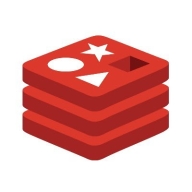

Find out what your peers are saying about Chroma, Elastic, Microsoft and others in Vector Databases.

Redis is a high-performance, scalable, and easy-to-use caching solution that improves application performance. It is also used for session management, real-time analytics, and as a message broker.
Redis's valuable features include its ability to handle large amounts of data quickly, its simplicity and straightforward setup process, and its support for various data structures, providing flexibility for different use cases.
Weaviate is a powerful tool for enhancing data search and analysis. Users can utilize Weaviate to improve search functionality, organize and connect data, and enable efficient data exploration and retrieval.
Its valuable features include powerful search capabilities, efficient data organization, and seamless integration with various platforms. Weaviate allows users to easily search and retrieve relevant information from large datasets, making it a valuable tool for data analysis and decision-making. It also efficiently organizes and structures data, enabling effective data management and manipulation.
Weaviate's seamless integration with different platforms facilitates easy collaboration and data sharing across systems.
We monitor all Vector Databases reviews to prevent fraudulent reviews and keep review quality high. We do not post reviews by company employees or direct competitors. We validate each review for authenticity via cross-reference with LinkedIn, and personal follow-up with the reviewer when necessary.